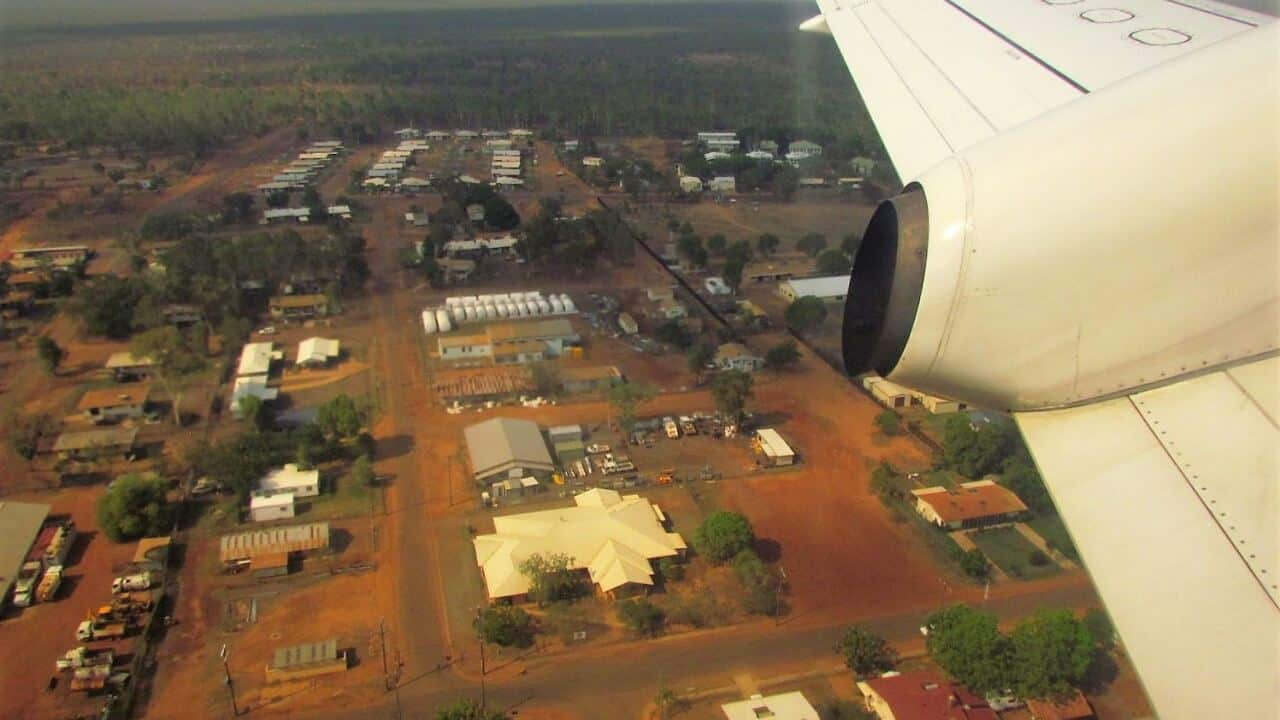A remote Indigenous community in north-west Queensland is set to face worsening conditions with total water restrictions now in place as the town supply struggles to keep up with current usage and a lack of rain.
The Gangalidda people from the Indigenous community of Doomadgee, located in the Gulf of Carpentaria and home to the Waanyi traditional owners and Garawa & Lardil residents, have had their water usage restricted by The Doomadgee Aboriginal Shire Council.
The council has declared in a public post that all community members “need to conserve our remaining water reserves otherwise we may run out of water".
It is urging all residents to be vigilant and to "only use water if it is absolutely essential".
This includes restrictions on watering gardens or driveways, washing cars, using sprinklers and any refilling of swimming pools or tubs.
Doomadgee Shire CEO Garry Jeffries said in a statement that falling water levels in the town water storage reservoir meant there was no available water for the pump station downstream.
He said the decision was made to save the little water that remained.
"This [decision] is due to the amount of water that is currently being used, [it] is more than the town supply can keep us with and levels are at the lowest they have ever been," Mr Jeffries said. The council has now implemented immediate steps to help preserve water within the community. Senior field staff have been briefed and "Water Monitors" have been appointed to patrol the community to identify anybody not complying with the new restrictions.
The council has now implemented immediate steps to help preserve water within the community. Senior field staff have been briefed and "Water Monitors" have been appointed to patrol the community to identify anybody not complying with the new restrictions.

Desley Watt inspects the southern end of Gunnalunja (Emu), the Waanyi-garawa name for the Nicholson River. | Photo Leith Watt Source: Leith Watt
Community member and Gangalidda man, Martin Evans, said the introduction of the restrictions has left the community concerned about the future of its water supply.
"If [no rain] happens next year, we will be in a bad state in terms of water, I think me and my people might have to put some real strict conditions in place," he said.
"We feel very sad about the water because it's not only [the restrictions] but the water is getting real dirty and we are also thinking about the hygiene side too."
Mr Evans said the community must follow the restrictions and if they don't then the council "should switch off the water pipes".
"We are in crisis, switch it off at certain times you know, like the mornings or lunchtime," he said.
"We have to work something out because no one is listening." The council is also considering similar contingency plans to other Aboriginal communities that are currently experiencing water crisis, including the New South Wales town of Walgett which continues to rely on bore water.
The council is also considering similar contingency plans to other Aboriginal communities that are currently experiencing water crisis, including the New South Wales town of Walgett which continues to rely on bore water.

Nicholson River runs low. | Photo Leith Watt Source: Leith Watt
As widespread droughts throughout New South Wales continue, the Walgett community has been tackling for the last two years, after its regular water source, the Barwon and Namoi Rivers, dried up.
The community reliance on bore water, drawn from the Great Artesian Basin, has often seen members of the community report illnesses and irritated skin, believed to have been caused by the high levels of salt and other minerals contained in the water supply.
Much of Australia, with November reported to have received the lowest rainfall on record in the country.










